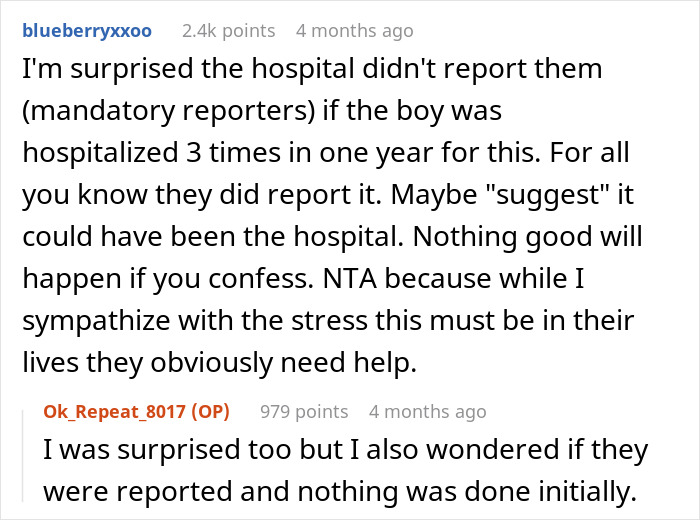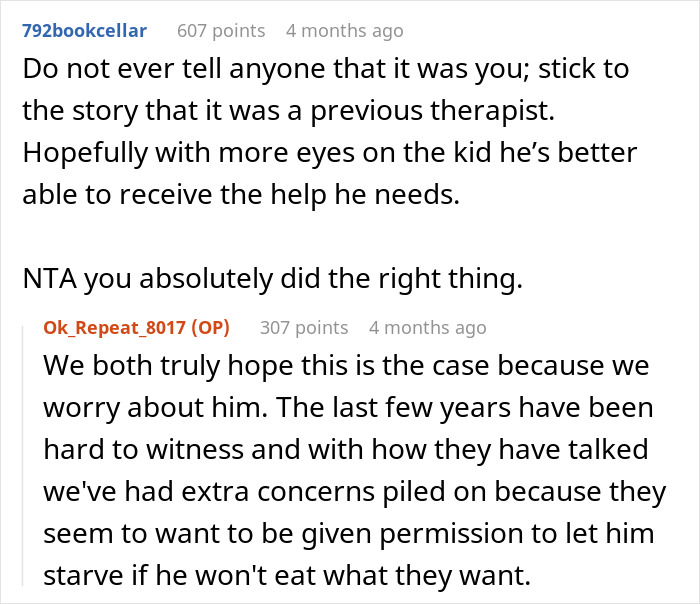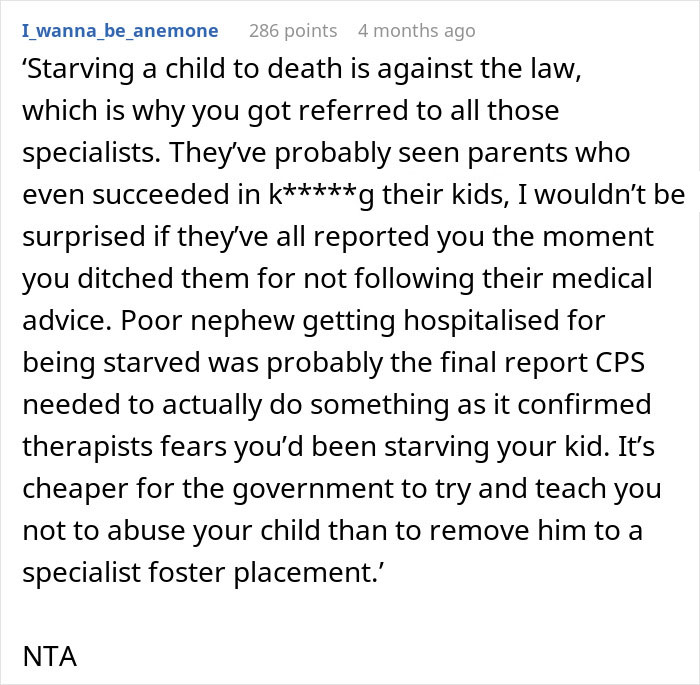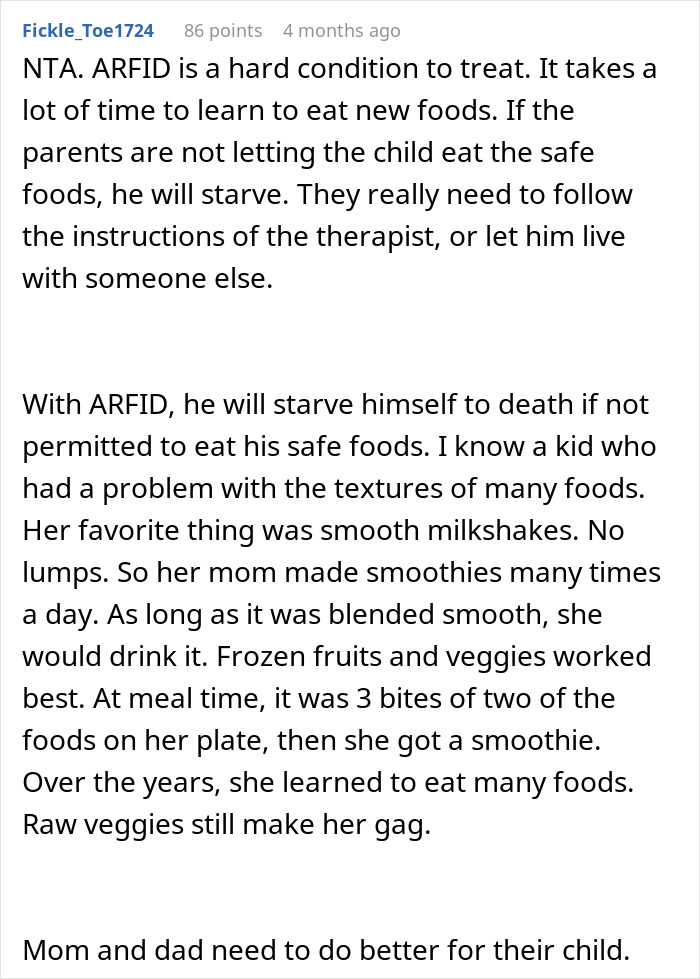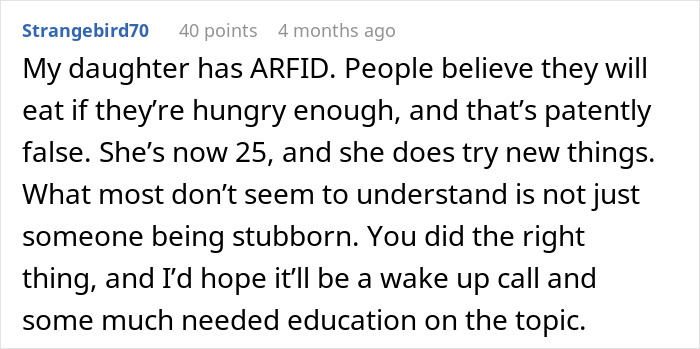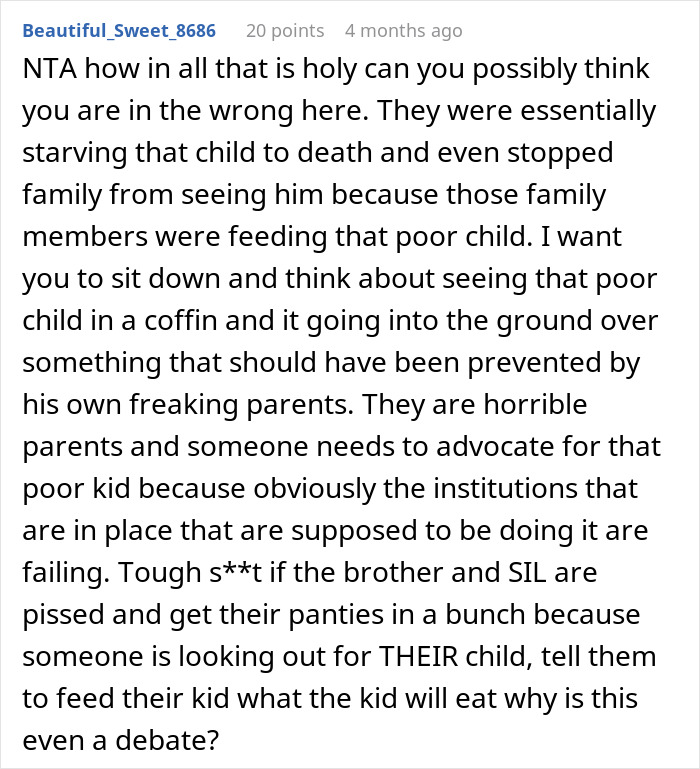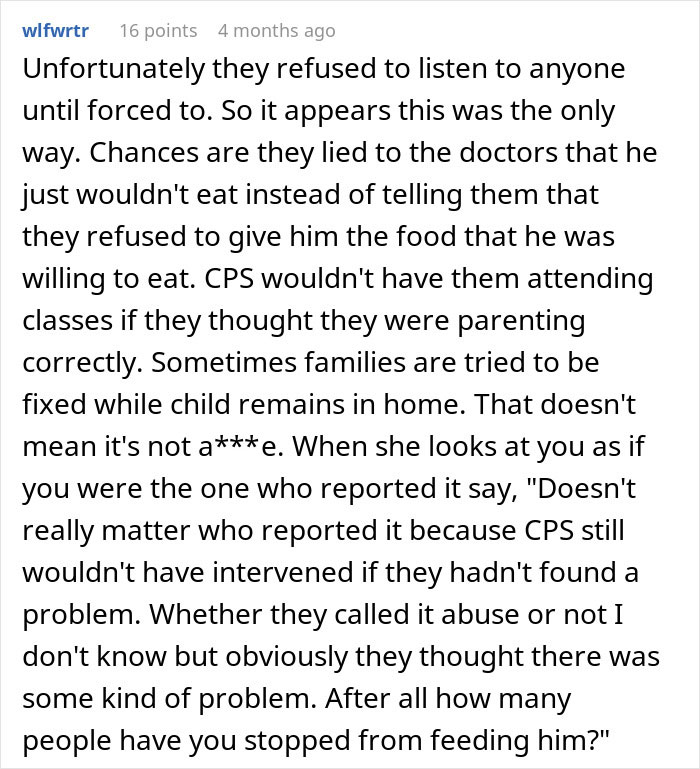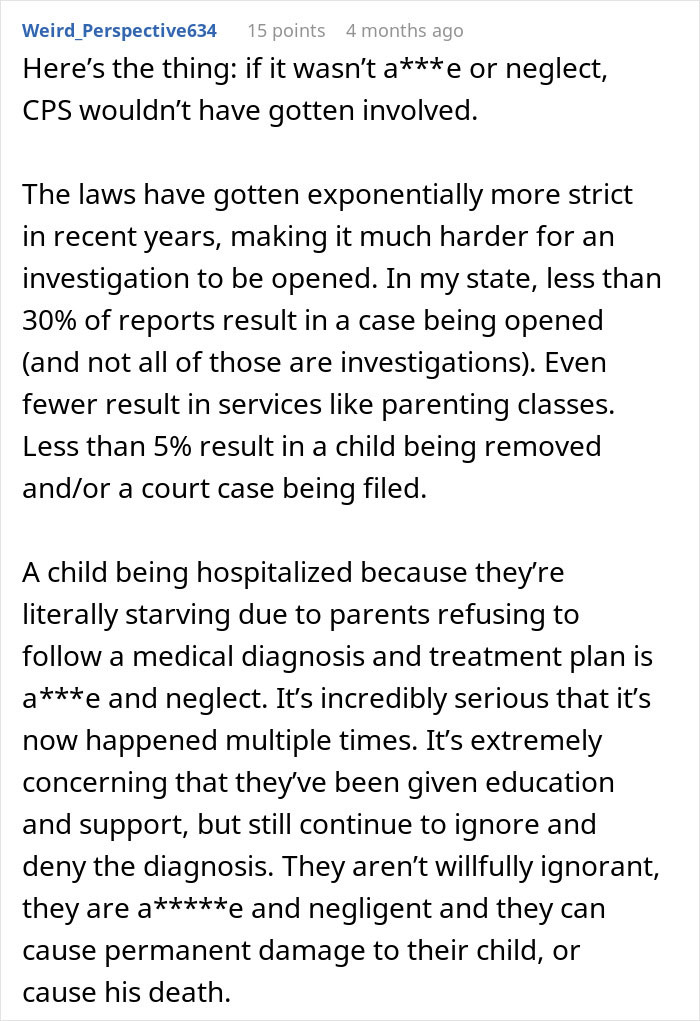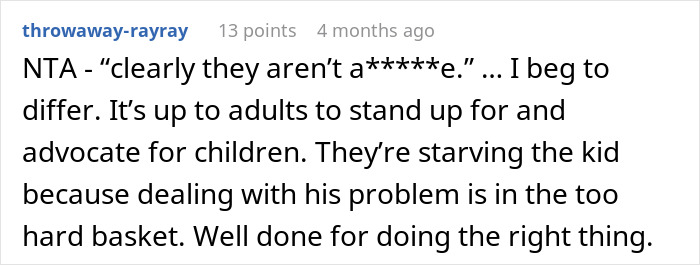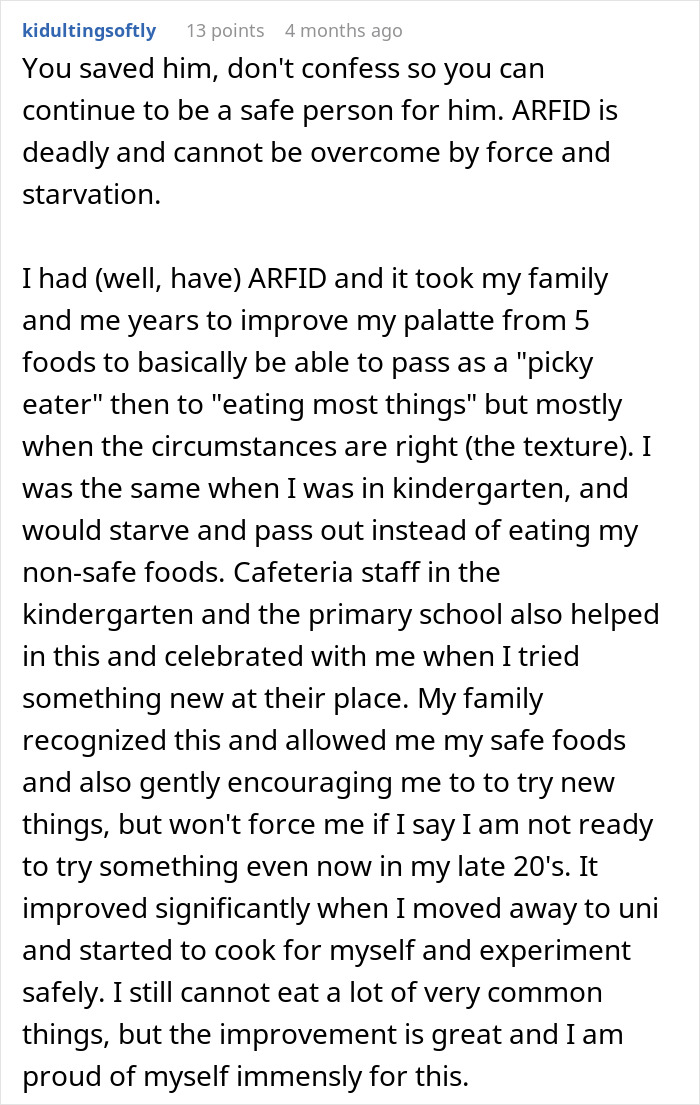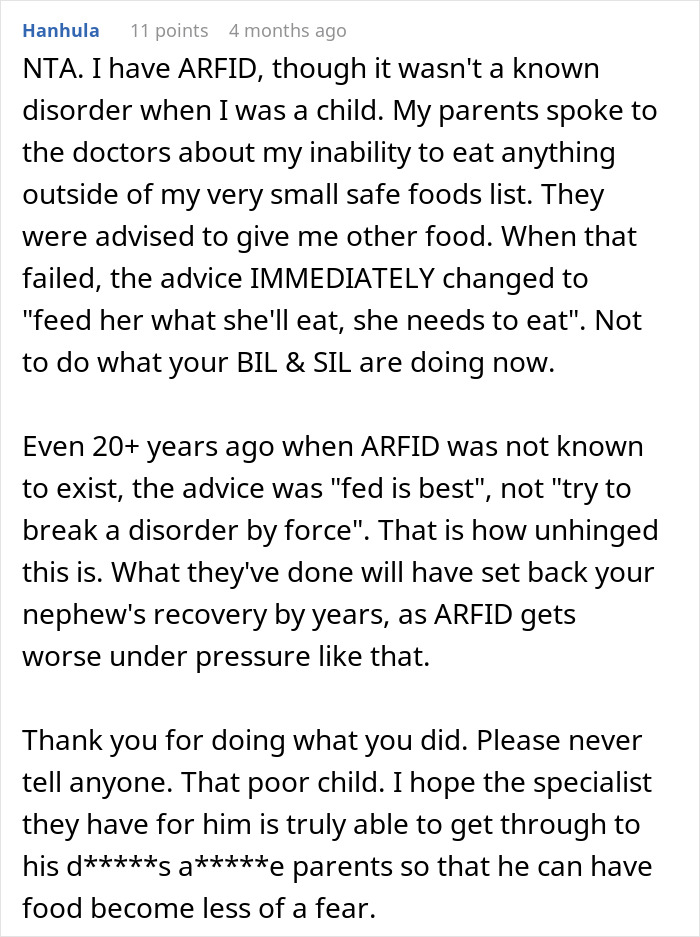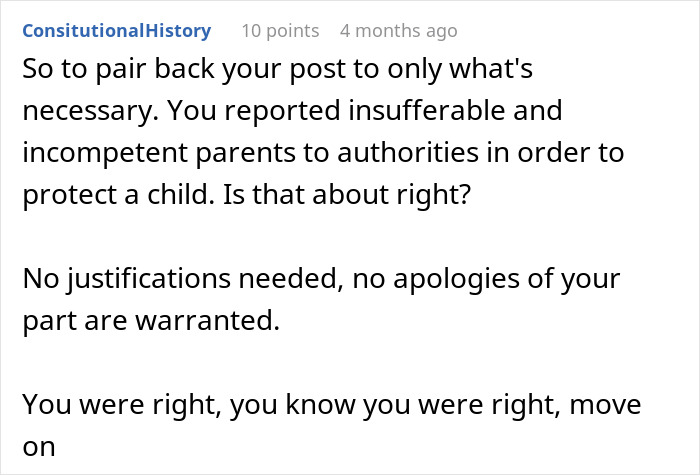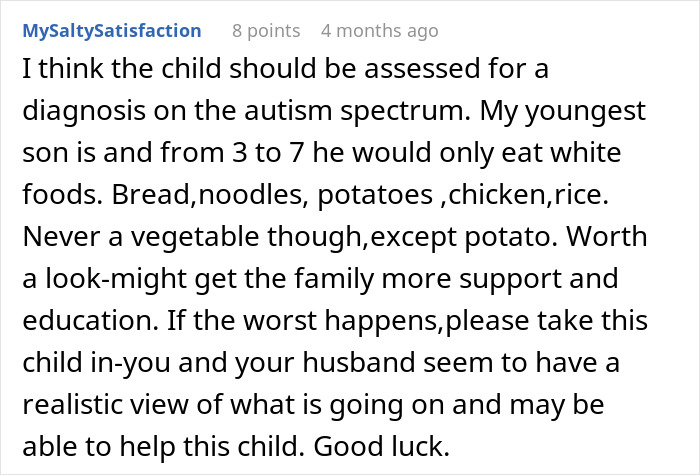It’s very common for kids to be slightly fussy about their food, as some might be more sensitive to taste, smell, or textures. However, if their aversion to eating or trying new foods results in undernourishment and starts limiting their lives, it can become a serious problem.
One that these parents faced but refused to accept. So instead of getting the help their kid needed, they tried taking away the foods he liked in hopes he would start eating other things. After numerous hospitalizations due to not enough nourishment, their in-laws decided to do something about it and reported them to CPS, which, well, caused quite the stir-up.
Sometimes, picky eating can be a sign of a bigger problem
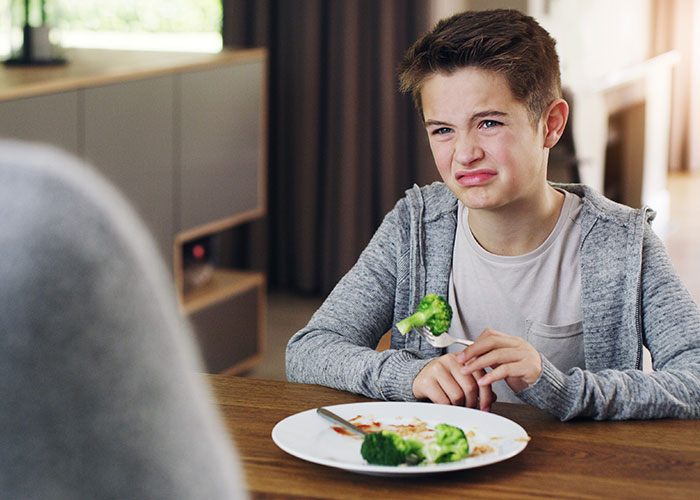
Image credits: The Yuri Arcurs Collection / freepik (not the actual photo)
As it happened with this family, who had many difficulties dealing with it, leading to CPS report
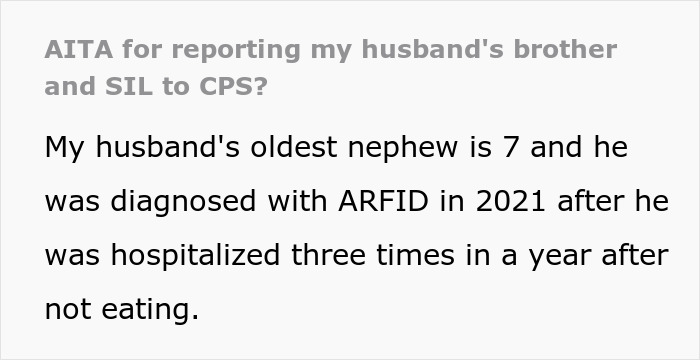

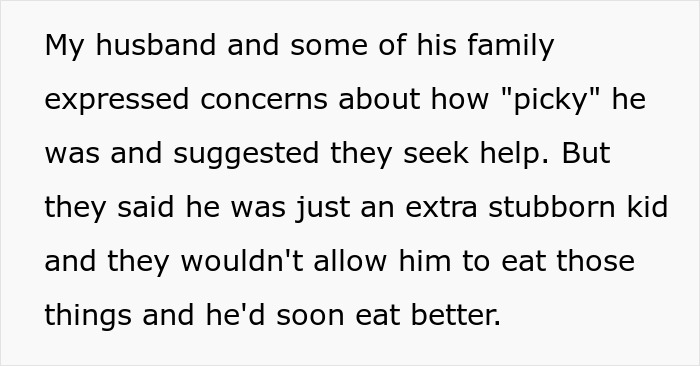
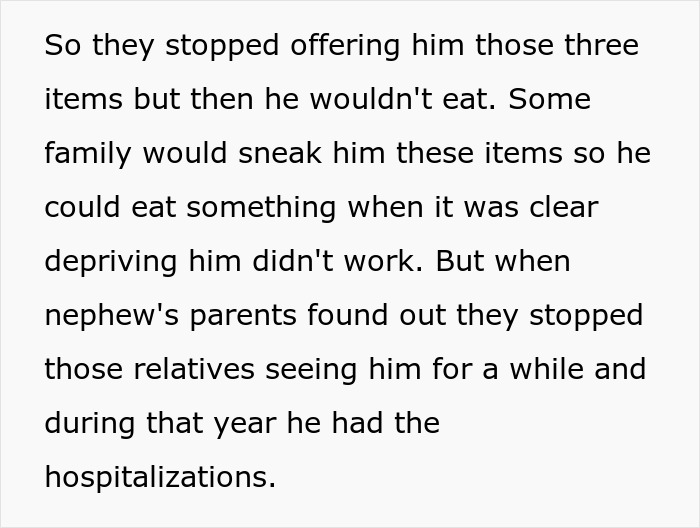
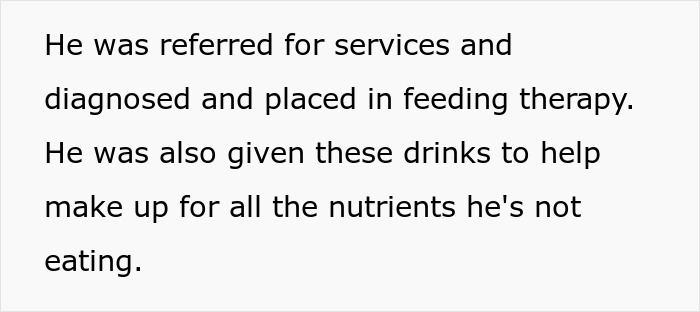
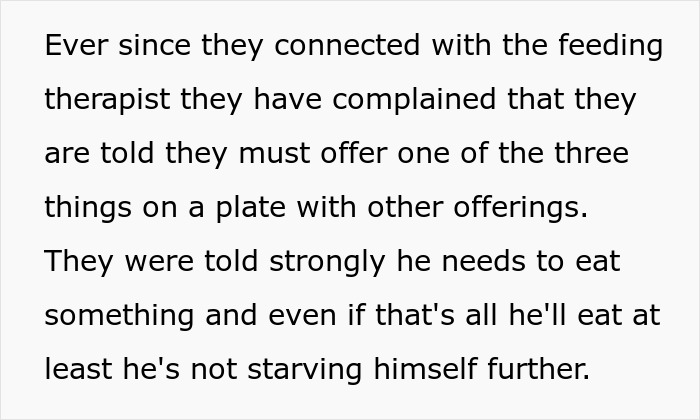
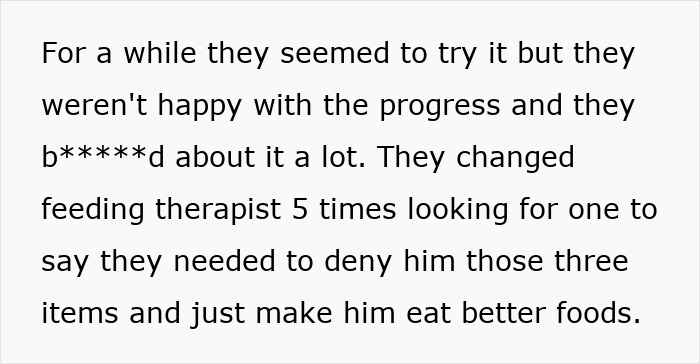



Image credits: wavebreakmedia_micro / freepik (not the actual photo)
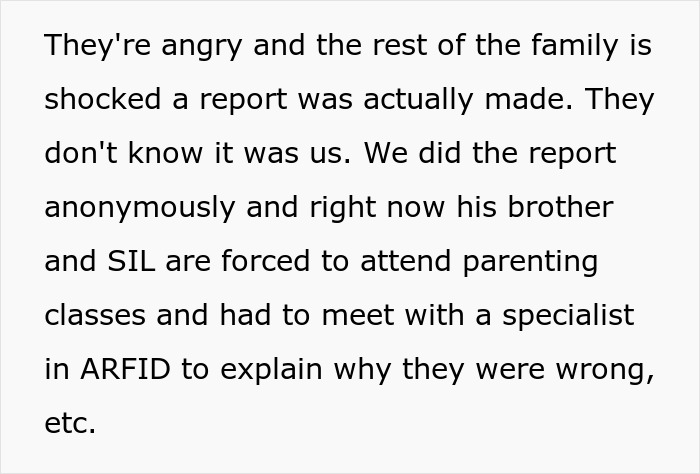



Image credits: Ok_Repeat_8017
One in four 1.5-year-olds and 3-year-olds are picky eaters

Image credits: Tamara Kirsanova / freepik (not the actual photo)
Almost all children go through a phase of picky or fussy eating. It’s a natural stage of development that usually appears between 1.5 and 2 years of age. In fact, a study of 4,000 children found that one in four 1.5-year-olds and 3-year-olds were picky eaters.
For some children, this phase passes on its own if parents handle it in a supportive and encouraging way. However, for others, picky eating can linger and peak at ages 7 to 8.
“That’s the age when parents begin realizing, ‘He used to be a great eater but now he won’t eat anything and it is affecting his quality of life,’ or, ‘We thought he’d grow out of it, but now we’re realizing it’s more than that,’” said clinical psychologist Dr. Jerry Bubrick.
In rare cases, due to the children’s environment, anxiety, or trauma, fussy eating can turn into ARFID – Avoidant Restrictive Food Intake Disorder. Symptoms of this disorder include significant weight loss or lack of growth, serious nutritional deficiencies, poor appetite, or food avoidance.
However, most of the time, it’s not the parents’ fault when a child is diagnosed with ARFID, as almost 80% of a person’s chances of having ARFID come from genetic makeup. While the environment can contribute to it, it has much less influence than the genes a person is born with.
“Parents should try to maintain a relaxed atmosphere around mealtimes”

Image credits: EyeEm / freepik (not the actual photo)
No matter the reason, the longer a child is severely picky or suffers from ARFID, the harder it will be to fix the issue. Therefore, it’s important to seek help the moment parents notice that their kids’ relationship with food is affecting their well-being.
Some children avoid certain foods because they are put off by the texture, are hesitant to try new things, or are afraid of choking. To reframe their thinking, specialists work with kids to explain how digestion works and dispel any myths they may have heard somewhere.
“The treatment is fun and child-driven,” notes Dr. Bubrick. “Although parents might be focused on getting kids to eat certain things, it is more important for the kids to buy into treatment first.”
The treatment often starts by making a list of foods the child should try and working out exactly why they avoid them. Then, the specialist, together with the child, can begin exposure therapy by introducing new foods in a controlled therapeutic way.
At home, “Parents should try to maintain a relaxed atmosphere around mealtimes and avoid turning food into a power struggle,” said Abigail Pickard, a researcher in developmental child psychology. It’s important that parents are supportive and encouraging about exercise and nutrition at home.
Something else parents can do to help their children with fussy eating is to model good behavior by serving and eating a variety of foods, having regular scheduled snacks and family meals, and staying calm and supportive during their child’s eating struggles.
Readers agreed that reporting parents to CPS was the right thing to do
